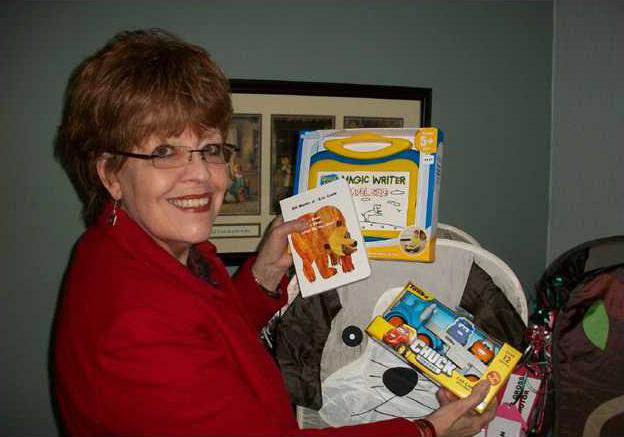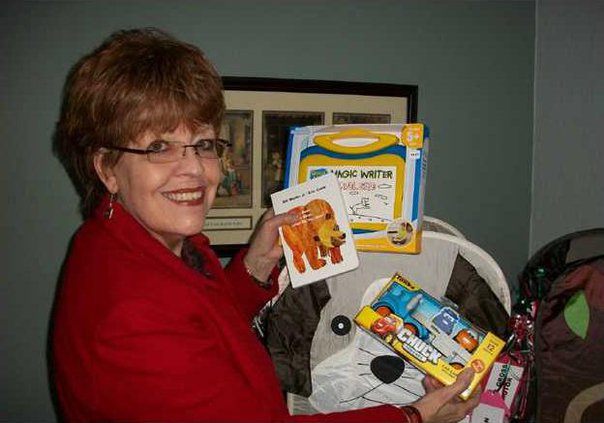Cathy Estes has been communicating with local and area physicians for years – just not face to face. So, as coordinator of Sunflower’s Early Education Center (EEC), Estes thought it was high time to change that.
Estes is personally visiting with doctors who care for EEC children in its service area. She is explaining the non-profit facility’s services, all of which are free, and delivering brochures and toy baskets for their offices.
“All the doctors or a clinic representative have taken time to sit down and talk with me about our many services, and I cannot tell you how much I appreciate it,” Estes said. “I wanted to update them on traditional services, as well as some of the relatively new ones. The information I shared impressed them.”
For example, they were surprised to learn the EEC has two speech-language pathologists. “This is especially important because speech is the most common reason for early intervention,” Estes said. “It is not necessarily a disability; rather it is often just a delay in development. And we can help a child reach speech milestones – quickly in many cases.
“The physicians also were surprised to learn the scope of the EEC’s expertise in autism spectrum disorders, and its commitment to help children with social/emotional issues,” Estes added. “There are so many teen moms with few or no parenting skills.”
The EEC offers direct services to families, and collaborates with other local agencies to arrange more support for teen moms, explained Estes, who has an extensive education in the social/emotional causes of developmental delays.
“I think everyone would be shocked to learn about the prevalence of families at risk in this area,” Estes said, noting doctors have been taken aback by this information. “In many cases, drugs and poverty are involved and the children are at high risk for developmental delays.
“We see many children failing to thrive,” Estes explained. “No one is answering their cries or cuddling with them. And they are not getting anywhere near the proper nutrition through ice cream and potato chips. It will break your heart.”
Sometimes, Estes noted, parents will stop bringing their children to the EEC because they don’t want to face their responsibilities.
“In an effort to encourage them to accept our free services, we are now notifying their primary doctor,” Estes said. “All the doctors and nurses I talked with indicated they would be glad to help; they want to know when these children are no longer receiving early intervention services.”
Dr. Marta Edmonds, Great Bend pediatrician, said she was “amazed and pleased with the evaluation and support services available at the EEC for children and families at risk. These may be families with children experiencing stressors in life, not only children with established developmental delays.”
Through the years, Dr. Edmonds continued, “the EEC staff has consistently been an excellent resource for our premature babies and young children with delays. It is important to remember that many children demonstrate a delay in one or more areas of development. The EEC is here to help them, as well as the severely disabled young child. Early intervention is the key to success.”
Other EEC services include occupational and physical therapy, early intervention for self-help and cognitive skills, and hearing and vision screenings.
Sunflower’s EEC, 1312 Patton, is part of the 37-member tiny-k network in Kansas. Its service area includes Barton, Pawnee, Rice, Rush and Stafford counties; the phone number is 620-792-4087.
Doctors learn of Early Ed Center services





